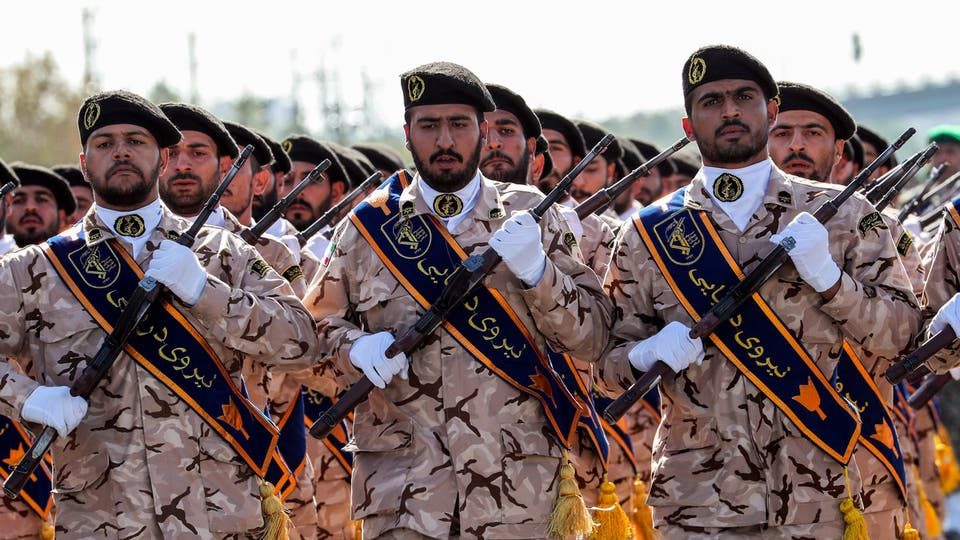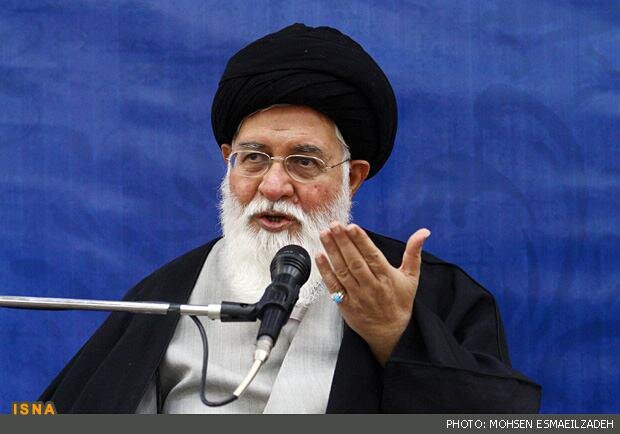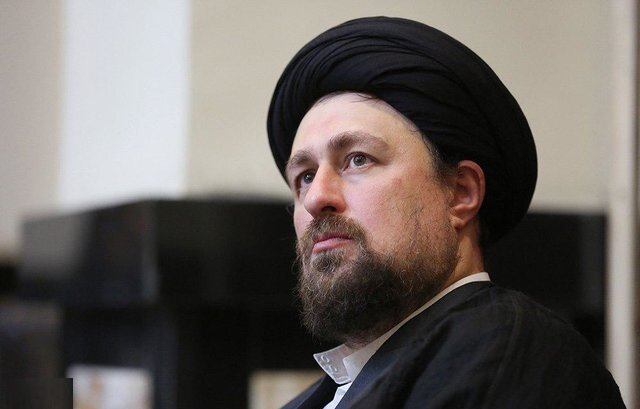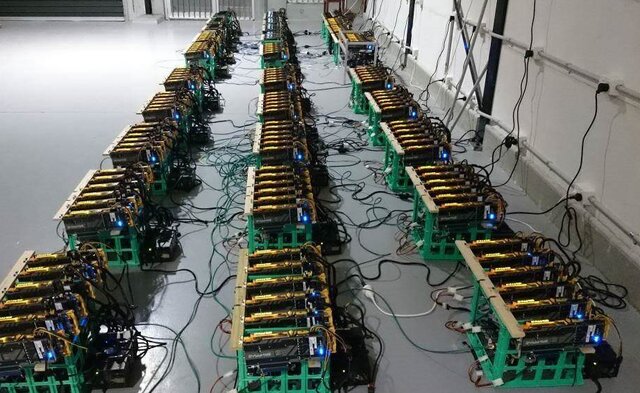
Hollow, Impossible Promises by Presidential Candidates
The editorial of Iran Daily, penned by political analyst Abbas Salimi Namin, urges that the presidential candidates for the upcoming election must avoid making unreasonable and impossible promises just to get people’s votes, as this will create confusion, as well as false expectations and hope within society.
Like previous presidential elections, candidates have started coming up with big slogans and making big promises. It seems that as the country’s situation becomes more complicated, some politicians decide to make more and more impossible promises.
There are many reasons for this, one of which is that Iranian politicians have realized that the more they can energize the public, the more successful they become in gaining people’s votes. In previous presidential elections, we could see that some candidates used certain slogans and severe attacks against each other to polarize the elections in order to succeed.
Currently, there are two kinds of confusion in campaign slogans. The first confusion is about the content of the slogans. There is neither logic nor reasoning in them. Such slogans are weak and doomed to fail from the very beginning. Promises made in such slogans are practically hollow.
The other issue is the confusion that the candidates’ slogans create in society with regard to demands, expectations, perceptions of reality, hope for the future, trusting the establishment, etc.
It seems that Iranian politicians are only thinking about temporarily winning public opinion, which might help them in gaining more votes in the short run, but will create more lasting problems for the entire management system in the country.
Today, recounting the country’s problems and chanting big slogans is not that difficult. Ordinary people can do that even better than the candidates themselves. Making hollow promises is not that difficult either. What is needed is offering logical solutions and keeping the electoral process free of populist sentiment.
Today, more than anything else, what is needed to guarantee the next government’s success is electing an experienced person who can offer solutions.
Presidential Candidates’ Promises Will Be Recorded
The editorial of Aftab Yazd warns the presidential candidates about their campaign promises, making a pledge that all their words will be carefully recorded so that later on they can be reminded of what they are saying now during their campaigns.
In most countries where presidential elections are held, candidates make campaign promises to resolve existing issues and shortcomings. Highlighting the weaknesses of previous governments as well as economic, social and cultural shortcomings, the candidates make promises to people to address those issues.
In most countries, including Iran, these promises are later forgotten and none of the voters would ask the candidates after the elections about what has happened to the promises they had made earlier. That is because they know very well that they will hear irrelevant answers to such questions.
Now if the elected candidates are asked as to why they had made such promises, they will most certainly say, “we made those promises, but why did you believe them?” And they are right. No reasonable person should have faith in hollow promises.
Hereby, we make a pledge to the presidential candidates that we will record all their campaign promises, so that if they later forget about their promises, the media will remind them. So, candidates must be very careful about what they are saying now and the promises they make.
Inflationary Policies Prevent Investment
The editorial of Arman Melli, written by economist Morteza Ezati, explains how the government and the Parliament’s policies result in damaging the country’s economy and increasing inflation.
To generate economic growth, the first policy must be to increase investments and the second policy must be to improve conditions for businesses so that investors can make investments. However, on the one hand, Iran has restricted the investment capacity in the country. And on the other hand, some people in the country are against foreign investments. And meanwhile, what is promoted in Iran is spending more money.
Under these circumstances, one cannot hope for a leap in economic growth. More spending and injecting money into society will only result in more inflation. When the production capacity doesn’t increase and money is injected into society to increase spending, then it will only result in inflation. For example, if we inject 20 percent cash into the economy, about 15 percent will be ravaged by inflation and only 5 percent will be really spent.
If this part of the economy is not managed, the injected money will go to those who have no role in production and this will damage production activities, only benefitting dealers and brokers. Whenever dealership and brokerage are more profitable than production, people will turn to it. That is why there is rapid growth in the number of service companies in Iran, as they are more lucrative.
As such, the government’s policies sacrifice production to dealership and brokerage, pushing people towards these businesses.
The Iranian Parliament’s performance is not much different. Lawmakers keep ratifying bills to give more money to people in order to increase their purchasing power. It means that neither the government nor the Parliament aim to amend the existing procedures to improve production. In other words, the government doesn’t want to increase the level of production to create more revenue and employment. When confronting the coronavirus pandemic, the government’s first measure was to give another subsidy to people, disregarding the damaging impact of such measures on the country’s economy. Such plans and measures will only result in more spending, resulting in more dealership and brokerage and undermining production.
People Have the Last Word!
Following the widespread disqualifications of presidential candidates – mostly former or current officials and managers – by the Guardian Council, the editorial of Arman Melli penned by the brother of the late Hashemi Rafsanjani states how such an act damages the credibility of the entire establishment in Iran and might result in a low turnout in the upcoming presidential election.
The process of qualifying and disqualifying presidential candidates by the Guardian Council has upset many people with different political backgrounds. When someone who has spent his life serving the revolution in Iran and has held official positions after the revolution is now disqualified, it is naturally upsetting, raising questions about the qualification process as conducted by this council. Such disqualifications imply that high-ranking officials and managers in the Iranian establishment have had problems.
This will not only result in the loss of trust in these officials, but will seriously damage the entire establishment’s credibility. These disqualifications are more damaging than the debates that were held in previous elections – when the candidates made seriously damaging allegations against each other.
In this regard, two points must be made: first, when disqualified, the performance and service of senior officials are questioned, and they are seen as corrupt. Second, the other blow to the establishment is the issue of people’s turnout in the election, an issue which has been repeatedly emphasized by the supreme leader. Low participation, according to Supreme Leader Ali Khamenei, will decrease the establishment’s acceptability. So low turnout in the election has direct repercussions for the establishment.
All these issues will have serious consequences for the Iranian establishment. Moreover, it makes it very difficult to motivate people to take part in such an election when many have been disqualified. But as we have seen since the beginning of the revolution, people have the last word. As seen before, a lesser-known candidate might enter the election and people might decide to vote for him as was witnessed in the 1997 presidential election when people decided to vote for Mohammad Khatami.

Head of IRGC Amar Base: We Have Reached the Stage of Purging the Islamic Revolution

On the verge of Iran’s presidential election, the rift among Iranian officials has deepened further after the Guardian Council disqualified a number of major political figures who have been in key positions over the past 42 years.
In reaction to mounting criticism against the Guardian Council, Mehdi Taeb, head of the IRGC’s Amar Base, has expressed his support of it, saying “we have reached the stage of purging the Islamic Republic revolution, and we will definitely win at this stage too.”
Taeb, who is also the brother of the head of the IRGC’s intelligence office, lashed out at the grandson of Ruhollah Khomeini for inviting the disqualified candidates to resign: “I’ve heard that he [Hassan Khomeini] said if he were in place of the candidates, he would resign; now we know why the supreme leader told him that he was not qualified to become president.”
Taeb was referring to the time when Ali Khamenei forbid Khomeini’s grandson from running for office. He then quoted Ruhollah Khomeini who had once told Grand Ayatollah Hossein Ali Montazeri “if you were to be the leader, you would hand over governance to the liberals and America because of your views.” Taeb then addressed Khomeini’s grandson disdainfully: “You are not even his [Montazeri’s] student’s student.”
In the same vein, Taeb lambasted Sadegh Larijani, who is himself a Guardian Council member and head of the Expediency Council, for his critical words against the Guardian Council, noting that if someone who is a member of the Guardian Council attacks this council, he has actually questioned his own position.
Finally, Taeb stressed that anyone who has a position in the Iranian government has acquired his legitimacy from the Vali Faqih. “If the supreme leader decides to tell the Guardian Council to do such and such tomorrow, the legitimate measure to be taken is that.”
Boycotting Iran’s Presidential Election Continues While Clerics Call Boycotters “Non-Muslim”

Following the “I do not vote” campaign, a number of major political organizations inside and outside Iran have issued statements, boycotting the upcoming presidential elections whereas a Friday prayer leader has said those who refuse to participate in the election are not Muslims.
The United Republicans of Iran, the Left Party of Iran and the National Solidarity of Iranian Republicans have boycotted the upcoming presidential election by issuing a joint statement.
These organizations, all based outside Iran, stress the following points in their statement: “unfree” elections over the past 42 years of the Iranian government as well as the Guardian Council’s determination to “homogenize the regime” and “directly appoint” the president.
This statement also reiterates the fact that the government’s major presidential candidate, Ebrahim Raisi, was “a member of the Death Committee in 1988 who was legally and criminally responsible in issuing death sentences for thousands of prisoners.”
“We demand that the standards of fair and free elections to be observed within the framework of a transition to democracy and establishing a democratic-secular republic instead of the Islamic Republic of Iran and handing over the country to its people’s truly elected president,” says the statement.
These organizations also warn that the government would “drive our Iran to a whirlpool of endless crises and destructive tensions.”
An Iran-based organization, the Freedom Movement of Iran, has issued a statement as well, saying “we will not participate in the elections which has been degraded to appointments.”
Meanwhile, Ahmad Alamolhoda, the Friday prayer leader of Mashhad and Ebrahim Raisi’s father-in-law, has declared that those who do not go to the polls are not Muslims: “The one who says he would not participate in elections is not a Muslim, according to a narrative of the Prophet.”
Khomeini’s Grandson to the Guardian Council: You Cannot Choose My President for Me

Amid attacks on the Guardian Council for its extensive disqualification of presidential candidates, one came from the grandson of the founder of the Iranian revolution, Ruhollah Khomeini, who has now questioned the legitimacy of the entire system.
Addressing the Guardian Council, Hassan Khomeini has said: “you cannot make decisions for people.” He added that the political system’s legitimacy depends on people’s decisions and it is through elections that the government acquires its legitimacy.
“Everybody has the right to vote. I, too, have the right to choose the person I want,” said Khomeini, “You cannot choose [someone] for me and say vote for him.” He continued: “The very same God who said if you are not faqih and righteous and not informed about current times, you have no guardianship, also said that people should accept you.”
Hassan Khomeini had previously lashed out at the council, saying its members have “put an ax to the root of the revolution” by their measures: “Any act which tends to negate republicanism is an anti-revolutionary act.”
Hassan Khomeini had planned to run for the presidency but backed down after Supreme Leader Ali Khamenei advised him not to do so. He had also previously been disqualified from the Expediency Council elections. Khomeini is currently responsible for an institution which publishes his grandfather’s works.
Meanwhile, the Guardian Council spokesman reacted to those who have predicted a low turnout for the presidential election, saying that a low turnout has no effect on the legitimacy of elections, according to law.
The Guardian Council has enjoyed strong support from Ayatollah Khomeini and Ali Khamenei over the past 42 years, hence disregarding any criticism or protest against its performance.
Import of More Than $10 Million Bitcoin Mining Machines Into Iran

The Iranian Customs Office says that so far about $10.2 million bitcoin mining machines have been officially imported into Iran. According to the technical deputy of the Iranian Customs Office, so far about 20,000 mining machines have entered the country.
These mining machines have been imported mainly from China.
These statistics are offered by the Iranian Customs Office, while some critics and officials blame mining cryptocurrencies for contributing to the recent power outages in the country. Energy Minster Reza Ardakanian had earlier said that one of the “surprising” factors in outages is the mining of cryptocurrencies. According to Ardakanian, for each bitcoin 300-megawatts an hour of energy is consumed which means that the electrical power of 30,000 houses must be cut off to mine one bitcoin.
Mining cryptocurrencies in Iran was legalized in 2019, while many started doing so in private mining farms illegally and without permits.
Due to the low price of electricity in Iran, apart from domestic miners, many foreign miners including the Chinese consider Iran a haven for mining cryptocurrencies.
China, Russia, Germany and Australia are among the foreign investors involved in mining bitcoin in Iran and are said to work through domestic agents.
In recent years, there has been a rise in the number of bitcoin mining farms in Iran that are mostly controlled by the Chinese. Earlier, Haft Sobh daily had written that the biggest bitcoin farm is in Kerman, consuming 12 megawatt-hour of energy a day to mine 1.7 bitcoin worth more than 1.3 billion tomans.
One of the reasons Iranian citizens show interest in investing cryptocurrencies is due to the drop in the Iranian national currency in recent years and the rapid growth of bitcoin in recent years.
In recent years, many bitcoin miners have been smuggled into Iran. For producing each bitcoin, more than 7 megawatt-hour of energy is needed, which is equal to the power consumed by 28 electrical power subscribers.
So far, 1,100 illegal mining centers have been identified and shut down in Iran.
